Do I need a visa for Slovenia? Visas for citizens of the Russian Federation. Documents for a visa
Updated:
A visa to Slovenia for Russians in 2017 is made for different periods and has different categories, which depends on the purpose and timing of the trip. can be quite simple: there are many in Russia. In addition to the consular department of the embassy located in Moscow, you can contact the staff or. The usual time for issuing a visa is no more than ten days, you will have to pay 35 euros. The visa center takes another 25 euros for its services.
- Types of visa permits
- Required documents
- Design nuances
Types of visa permits
According to the type and duration of entry permits, a foreigner can apply for a tourist, work, student visa. A tourist visa to Slovenia is issued for acquaintance with cultural heritage, nature, architecture of the country. A tourist permit is issued for a short period equal to the declared travel time. The purpose of obtaining a short-term visa may be a guest or friendly visit. In this case, it is necessary to submit to the embassy an official invitation (original) received from friends or relatives living in Slovenia and officially registered there. This eliminates the need to book and pay for accommodation in a hotel in advance.

Non-working citizens have the opportunity to obtain a visa if they have a financial sponsor (attach a letter of sponsorship and financial documents confirming his solvency). Pensioners must submit a copy of the pension certificate, minors - a certificate from the school or student card, birth certificate.
If the minor is traveling with one parent, a notarized travel authorization from the other parent will be required. When traveling without parents with an accompanying person, you need to make him a power of attorney from both parents.
After the age of 14, the child must have their own foreign passport. Before this period, it can be entered in the document of one of the parents (a photograph of the child must be pasted there).
Design nuances
The cost of a standard Schengen visa is 35 euros, it is possible to ask for an expedited processing procedure. This service will cost twice as much, but the staff of the embassy, consulate or visa center will process the document in just two to three days.
For a long time urgent visa category D costs 77 euros. The amount is considerable, especially considering that visa and service fees are not refundable in case of refusal. The issuance of such a permit usually takes eight to ten days.
You can hand over the documents in person or through an intermediary by issuing a power of attorney to him. An intermediary can be a private person (friend, relative) or a representative of a travel agency. The travel agency will charge extra money for this service.
The embassy rarely refuses a short-term tourist visa. Usually the applicant is to blame for filling out the documents incorrectly or submitting an incomplete package. "Long" category D visas are more difficult to obtain and there are more refusals here. Consular officers are not required to provide any explanation for the refusal. If you receive a negative response to your request, you can appeal to the Ministry of Foreign Affairs of Slovenia (not to the consulate). Consideration of the appeal will take a long time, you need to be prepared for this.
If for some reason it was not possible to get a positive answer, it remains to be hoped that some other state of the Schengen zone will issue a Schengen visa. With such a visa, you can visit the territory of any Schengen country, including Slovenia.
Visa refusals from this country are extremely rare. The hospitable land of Slovenia is always happy to welcome foreign guests, so getting a Slovenian visa can be quite simple.
Ask your question below and get a free individual consultation of our expert in 5 minutes!
The former Republic of Yugoslavia - Slovenia is now part of the European Union and is actively developing its own economy. Tourism is one of the industries that bring a good income to the state treasury. Slovenia has many natural and historical attractions. To visit them in 2017, Russian tourists will need a Schengen visa, since Slovenia is part of the Schengen agreement.

General information about visas
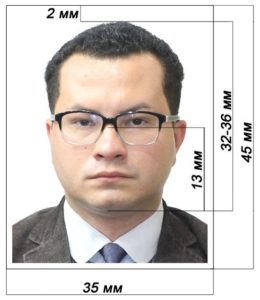 You can open a visa to Slovenia using the option that is convenient for you. There are two ways to get it.
You can open a visa to Slovenia using the option that is convenient for you. There are two ways to get it.
- The first option in 2017 is to independently prepare documents and submit them to the diplomatic mission of Slovenia in Moscow. The peculiarity is that the submission of documents for a Schengen visa to Slovenia in 2017 is carried out additionally in diplomatic missions of other EU countries. For example, Russians can independently submit them to the consular departments of the Latvian Embassy in Yekaterinburg, Pskov or consulate-General in St. Petersburg. Accepts documents for a visa to Slovenia and the Consulate General of Hungary.
- The second option is to submit documents to the Visa Application Center of the Republic of Slovenia. The network of such centers is located on the territory of the Russian Federation and Russians should choose the nearest center to the place of registration. You can get acquainted with the information you are interested in on the official website. Choosing given way documents, remember that employees of such institutions do not influence the decision to issue a visa in any way. Their duty is to check the correctness of the execution of the documents collected by the applicant himself and their transfer to the consular department. The cost of these services is included in the service fee paid by the visa applicant.
- Depending on the purpose of your trip to Slovenia in 2017, you need to choose a certain type of visa. The most popular for Russians are visas of categories C and D. The first category, in turn, has specialized areas, which should be chosen. Among them, tourist, guest, business visas keep popularity. The second direction includes species that belong to the so-called national visa. Of these, among Russians, the most popular are work and student visas.
Documents for a visa
In 2017, a trip to Slovenia will require a Schengen visa belonging to category C. The rules of the Schengen Agreement are aimed at adopting unified standards. Therefore, since 2013, the Unified list of documents and the same price for the cost of their execution, adopted for all member countries of the Schengen area, have been in force.
 Note. Russians who will apply for a Schengen visa for the first time in 2017 are required to undergo the procedure for submitting biometric data. It is based on the surrender of fingerprints, exemption from which are children under 12 years of age and members of the diplomatic corps.
Note. Russians who will apply for a Schengen visa for the first time in 2017 are required to undergo the procedure for submitting biometric data. It is based on the surrender of fingerprints, exemption from which are children under 12 years of age and members of the diplomatic corps.
The basic list of documents includes:
- the main document is a foreign passport, which must be valid for another three months from the end of the intended trip and contain blank pages on which visa stamps are affixed;
- page copies foreign passport with photos and personal information;
- a completed application form for a Schengen visa, which is printed and signed without fail;
- 2 photographs that must meet certain requirements, which should be consulted in advance on the websites of official diplomatic departments or visa centers;
- photocopies of pages internal passport Russian citizen.
- medical insurance policy covering the offensive insured event in the amount of at least 30 thousand euros (original and copy);
- documents confirming your ability to pay (the rules provide for an amount of 50 euros for each day of stay);
- documents confirming the purpose of the trip.
Note. In the role of confirming official papers, indicating your financial condition, in 2017, certificates from the place of work, which contain information about the official salary, may act. Private entrepreneurs submit a certificate of registration. Such documents can be certificates from banks showing the movement of funds on the account, payment cards. You can also use the so-called sponsorship letter, which indicates that the inviting party is responsible for the cost of your content.
Documents related to proof of the purpose of travel may include an invitation from relatives or friends sent to the applicant with contact details. It can be an invitation, both from the physical and legal entity. In the case of a tourist trip, a paid hotel reservation will be required for the entire stay in the country. You must provide a return ticket reservation.
The Republic of Slovenia joined European Union in 2004, together with Slovakia, the Czech Republic, Poland and a number of other countries, and since 2007 it has entered the Schengen zone. A visa to Slovenia for Russians in 2017 is issued according to the same rules as in other countries of the Schengen zone. Travel Schengen to Slovenia is easy to get on your own, a big plus is that the consulate of this country is favorable to citizens Russian Federation and without any problems draws up multiple visas. Many guests, going to Europe, apply for a Schengen visa at the representative offices of this particular country.
19 service and visa centers have been opened throughout Russia, specializing in obtaining visas to Slovenia. Also, registration is available directly at the consulate. Addresses and opening hours of organizations are posted on the embassy website.
Pre-registration, mandatory before submitting an application, is available on the website of the consulate or visa service center. Standard Schengen allows you to stay in the Schengen area for 90 days. If the trip involves more long term stay in Slovenia, for example, for study or work, you will have to draw up documents at the Embassy in Moscow. The duration of consideration of such a visa is several months, more detailed information about the national visa is on the website of the consulate.

Since 2013, the Schengen Information System has undergone a number of amendments regarding the processing of the Schengen. Among them is the introduction in 2015 of a mandatory fingerprinting procedure to create unified register persons visiting the Schengen area. Each person applying for a visa must provide their fingerprints. You need to do this only once at the embassy of any country, after which the information will be entered into the database.
List of documents
There are 5 types of visa:
- Tourist
- Business
- Visiting relatives
- Learning activities
- Transit
The list of documents for a Slovenian visa for Russians in 2017 is standard and meets the requirements in other EU countries.
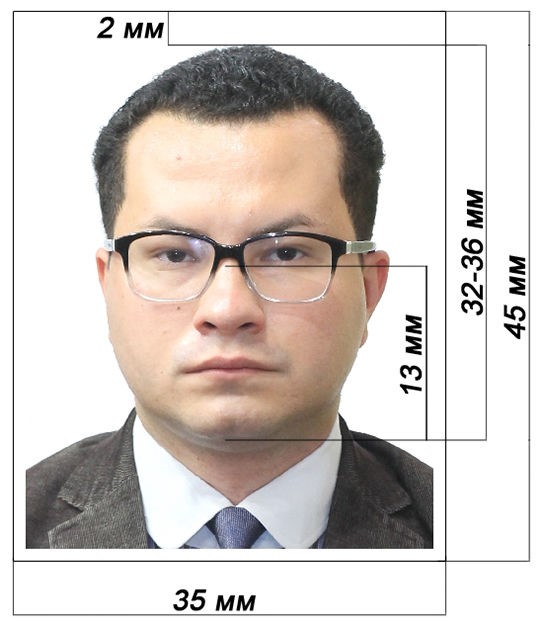
- . Completion is allowed in English or Slovenian.
- International passport. The period of validity must expire no earlier than three months after the end of the trip.
- Photos. 35x45 mm on a white background. The volume of the face relative to the entire photo is at least 70%.
- Visa fees. It is 35 euros per person, for an urgent visa - 70 euros.
- Medical insurance. The period of validity must match the dates of your visit to the Schengen area. The minimum sum insured is €30,000, which fully reimburses all possible medical expenses.
- A copy of the passport of a citizen of the Russian Federation. All completed pages.
- Minors provide a copy of the birth certificate, parental permission (if traveling alone or with one parent), a copy of the parent's Schengen visa.
- Persons residing within the Russian Federation without citizenship provide confirmation of the legality of their position.
Tourist visa
- Solvency guarantee. A certificate from work indicating the amount of salary or confirming the reserve of funds in the account. If it is impossible to provide such information, a sponsorship letter is attached, from the person who takes the costs of the trip on himself.
- Confirmation of the purpose of the trip, in accordance with the category, this may be a hotel reservation, a document indicating the ownership of real estate, a certificate of burial of a relative.

Business
- Solvency confirmation. An extract from the bank on the state of the account, a certificate of 2NDFL or 3NDFL, an agreement allowing entrepreneurial activity.
- Purpose of the trip. A call from the host confirming the provision of work or participation in a scientific conference, exhibition, work contract, certificate of a journalist, etc.
Visiting relatives
- Written invitation from hosts. With family ties.
- A document certifying the citizenship of the host.
Learning activities
- Notice of sponsorship from one of the parties.
- Purpose of the trip. A written challenge from the host institution, information about participation in a scientific or educational event, an order for admission to an educational institution.
Transit
- Solvency confirmation. A letter of confirmation from the bank about the availability of funds in the account, data from work or a sponsorship letter.
- Evidence of the purpose of the onward trip. Air tickets, visas to a third country.
Traveling with children
Slovenia is famous for its children's camps and hotels for family vacation. Until 2010, there were no uniform rules for processing children's documents, so a logical question arises. Do I need a visa to Slovenia for a child?
According to the current legislation, a Schengen visa is issued for all children, both those who have their own passport and adults entered in the passport.
Required documents:
- Questionnaire. Certified by the child's parents or guardians.
- Original and copy of birth certificate.
- International passport. For persons over 14 years of age and for those whose data is not indicated in the parents' passport.
- A copy of the passport of the accompanying adult with an open visa - parent, teacher, guardian
- Photos. Size 35x45 mm on a white background.
- Medical insurance. Valid for the duration of your stay abroad.
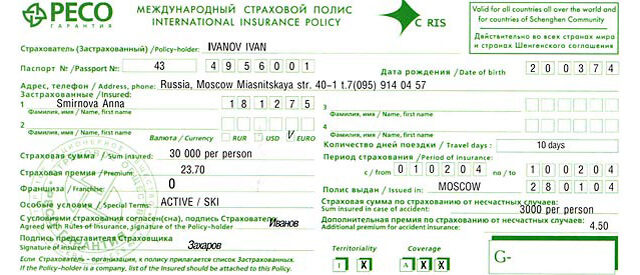
- Certificate provided by the educational institution.
- Permission of parents to stay outside the Russian Federation unaccompanied, with third parties or with one parent.
- Proof of the absence of a second parent. Court order to terminate parental rights, death certificate, notice from guardianship authorities.
- If you are in the Schengen area on your own, a sponsorship letter from one of your relatives is required.
The listed papers are handed over to adults who apply for the Schengen along with their data. According to the rules, in Slovenia, children under the age of 14 cannot be without adults.
Terms of execution and cost
If the entire set of documents is collected correctly, then a Slovenian visa will be issued within five working days. The execution time may increase depending on the place of application - visa service centers and windows carry out this procedure longer than the embassy.
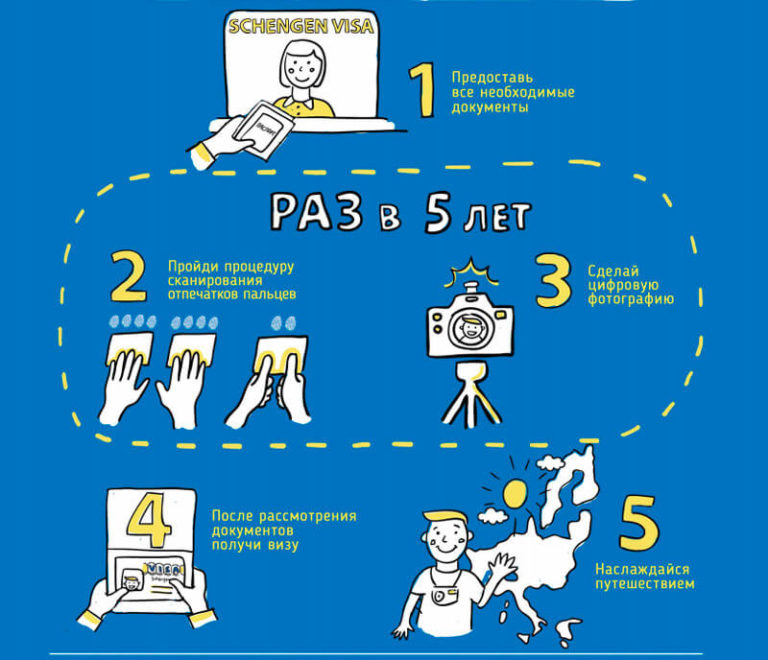
Available urgent clearance- within three business days. Sometimes the application processing time reaches a month, and the Embassy has the right to invite a person applying for a visa to be interviewed.
You can apply for a Schengen no earlier than 90 days before the start of the trip. Best Option is the submission of data 15 working days before the date of departure.
Price consular fee- 35 euros, for urgent visas - 70 euros. Service and visa centers take in addition, about 20 euros for various expenses.
What to do in case of refusal
As a rule, there are no problems with issuing a visa at the Slovenian Embassy. Nevertheless, a refusal is quite likely, usually this is due to incorrect filling out of the questionnaire or the absence of any documents, in which case they are notified by an official letter.
Persons who have been denied a Schengen visa can file an appeal. While the appeal is pending, the applicant is not eligible to re-apply for a visa.
Issuing a visa
Information about the readiness of documents is available around the clock on the website of the Slovenian Embassy. When filling out an application, it is possible to order an SMS notification of readiness. You can get a ready-made passport in visa application center or via courier.
It is allowed to pick up documents within a period of up to 30 days from the moment they are delivered to the visa center, if they are not picked up during this time, they will be sent back to the consulate, in which case they can only be picked up at the Embassy in Moscow.
Due to the fact that Slovenia is favorable to the Russian Federation, visiting it is more accessible than other EU countries. In addition, this country is popular with those who wish to live in Europe. The combination of culture close to Russia and European civilization attracts an increasing number of tourists.
Slovenia is a country very close to us in spirit, which has always had excellent friendly relations with Russia. In that beautiful state there is a mass interesting places and interesting sights that deserve attention: beautiful landscapes, mountains and gorges, vineyards, picturesque lakes, waterfalls, ancient castles and cute little villages. All this forms a unique and unique look Slovenia. If you would like to visit this beautiful country and see all these sights with your own eyes, you will definitely need a visa to Slovenia. For some time now, this country has become a member of the Schengen Agreement, therefore to travel to Slovenia, Russians and citizens of many other states need. 2017 brought no relief visa regime and are not planned for the foreseeable future.
Attention! Since September 14, 2015, for all applying for Schengen visas, mandatory submission of biometric data has been introduced. It is necessary to pass the procedure of fingerprinting (fingerprinting) and photographing at the visa center. The data obtained will be valid for 5 years (59 months). In this regard, the initial registration of a visa implies the obligatory personal presence of the applicant when submitting documents. Children under the age of 12 are exempted from fingerprinting (but not from photography).
Types of visas to Slovenia
Depending on the main destination and duration of the trip, you will need to apply for the appropriate type of visa. If you are planning to travel to Slovenia to get acquainted with the culture and sights of this state, you will need a standard tourist visa.
For those who plan to travel to Slovenia for a long period, for example, for professional purposes, it is necessary Work Visa(type D). It is issued only to those residents of foreign countries who have an officially concluded contract with an employer on the territory of Slovenia. Persons working in Slovenia without such a visa are considered violators. State bodies strictly monitor compliance with labor laws and, if illegal workers are found, expel them from the country.

If one of your friends or relatives permanently resides in Slovenia, you can also apply for visa at their invitation. Your acquaintances must issue an official invitation and send it to you by mail (copies sent by e-mail will not be accepted, only the original must be provided). Having an invitation will make your trip much easier - some documents for a visa will not be needed (for example, confirmation of a hotel reservation).
At foreign citizens there is also the possibility of obtaining higher education in Slovenia. For this, it is required to issue student visa, designated category D. Today, there are three higher educational institutions operating in the country (the University of Ljubljana, the University of Maribor and the University of Primorska). In total, they have more than forty faculties and train professionals in dozens of different specialties. Education here is quite affordable, including for foreign students. The most gifted and active have the opportunity to receive large state scholarships and grants for education. Therefore, today education in Slovenia is becoming more and more popular and in demand every day. A student long-term visa is granted to those who plan to receive higher education in Slovenia. Students of summer courses and short-term study programs need to apply for a standard type visa.
Features of applying for a child visa
If you are going on an exciting trip with children, you will need to prepare some special documents. Minor child can be officially entered in the father's or mother's passport only if he is under 14 years old (at the same time, his photograph must also be pasted into the passport). Teenagers aged 14 and over are required to obtain their own passport.
In addition, to obtain a child visa, you must have the original and a photocopy of the birth certificate, 2 copies of the original permission of the mother or father for the child to travel abroad (if he travels only with his father or mother), or an authorization document from both parents when the child, for example, goes to tourist trip with grandma and grandpa. Teenagers and children also need to have an official certificate from educational institution- this is mandatory even during summer holidays, so if you want to visit this state while on vacation with children, make sure to get a certificate from the school in advance.
Required documents
To obtain a regular tourist visa to Slovenia, you will need a standard set of documents:
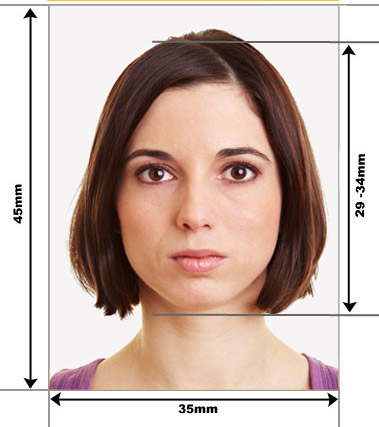
If you responsibly and carefully approach the process of preparing all these documents and submit a complete set of papers to the Consulate, you should not have any problems with obtaining a visa.
material question
The cost of a visa to Slovenia today is quite familiar (it is the same in all current Schengen members) - 35 euros. This price will have to be paid, whether you need a visa for a short trip of only a couple of days or a visa for five years. And for a type D visa, you will be charged 77 euros. The paid fee is never returned back, even in case of refusal. On average, consideration of an application takes about eight to ten days; delays in the presence of all well-prepared documents almost never occur. If you do not have time to wait, an urgent visa will probably suit you, which is issued in 2-3 days. For such an expedited procedure, the consulate will charge you double the fee.
Documents for a visa can be submitted to the representative office on your own, but it is also possible to issue documents without the personal presence of the applicant. For example, if you do not have the opportunity to personally come to the Consulate, you can ask one of your friends to submit documents for you, or contact tourist agency. In this case, you will have to issue a power of attorney, which confirms that you allow the specified person to act as your representative at the Embassy. If you apply for a visa through an agency, you will have to spend an additional amount for this service (each travel agency sets its own prices for its work). If you choose this path, be extremely careful - trust only proven and reliable organizations.
Possible problems
As statistics show, the percentage of negative decisions on the consideration of applications for tourist visa to Slovenia today is minimal. If suddenly you were denied such a visa, this most likely means that you incorrectly filled out this or that paper or provided an incomplete list of the necessary documentation.

Category D visa denials are much more common. The consulate, in accordance with diplomatic rules, reserves the right to refuse to issue an entry visa without giving any reasons. If this came as a surprise to you and you are sure that all your documents are in order, you have the right to appeal. This can be done within ten days after receiving notification of a negative decision. Appeals to similar cases are considered not at the Consulate, but directly at the Ministry of Foreign Affairs of Slovenia. Appeals may take a long time to process.
Even when you are rejected, know that this is not at all a reason to be upset. Since Slovenia is part of the Schengen area, you can also have a visa from any other Schengen state to enter this country. True, be very careful and cautious. If you plan to visit several countries of the agreement at once, you need to apply for a visa at the embassy of the state where you plan to stay the longest during your trip. If you are traveling to Slovenia with a visa of another country, be prepared to describe the travel plan in detail at customs and, if necessary, present the relevant documents (hotel reservations, proposed route, etc.)




